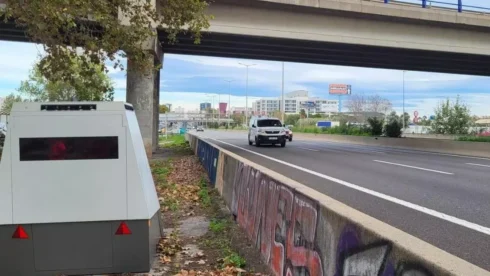A SHOCKING case has rocked Andalucia, exposing how Chinese mafia bosses laundered drug money through bazaar stores.
Some seventeen members of a Chinese crime syndicate faced trial in Sevilla’s Criminal Court recently, with 14 convicted of criminal organisation charges and 12 of drug-related offences.

The ring leader was also found guilty of electricity fraud. However, despite these serious charges, none of the convicted individuals will serve prison time, as they lacked previous criminal records, received sentences under two years, and confessed to the crimes.
According to the court ruling, this group of Asian gang members — an unusual presence in the Spanish drug scene — will avoid incarceration on the condition they remain crime-free for the next four years.
The syndicate, described as ‘perfectly structured’ in court, spanned four provinces: Sevilla, Huelva, Malaga, and Granada.
Specialising in the production and distribution of marijuana, the group managed indoor cannabis farms, sending the drug to Spanish cities and further into central Europe via courier services.
The Guardia Civil had raided these locations four years ago during ‘Operation Almaju’, seizing 193.345 kilos of cannabis valued at over €338,000.

Authorities estimated that in 2019 alone, the group’s illegal trade generated millions of euros. Two distinct divisions of the syndicate were identified.
One in Sevilla and Huelva, led by Maolong L., who managed and financed operations, and another in Malaga and Granada, led by Congqin X., who oversaw plantation workers, coordinated drug sales, and implemented security measures to avoid detection.

The syndicate’s farms were situated in residential areas, using Chinese nationals reportedly living in conditions akin to slavery.
Most had entered Spain illegally via international human trafficking networks and were described as living in ‘precarious circumstances’.
The judgement noted that the syndicate’s leaders exploited these individuals, many of whom carried heavy debts in their home countries, making them vulnerable to forced recruitment.
A pair of these ‘workers’ testified to the Guardia Civil and the court that they had been trafficked into Spain under false promises, only to find themselves confined to isolated farmhouses, deprived of personal identification and denied wages.

To launder their earnings, the syndicate channelled profits through Asian-owned businesses, specifically two bazaar-style shops in Granada and Huelva.
These stores, according to the court’s findings, served as legitimate fronts for laundering money generated from drug trafficking.
Authorities discovered sophisticated cultivation setups within upscale villas located in Espartinas, Palos de la Frontera, Aljaraque, Mijas, Alhaurin de la Torre, and Benalmadena.
Inside these properties, officers found large quantities of fertilisers, halogen lights, fans, and illegal electricity connections — everything needed for growing genetically modified cannabis.
The organisation’s attention to detail extended from cultivation through to laundering, with cash smuggled to Madrid and even cities in the Netherlands and Belgium.
While members of this syndicate won’t be serving prison time for now, the case underscores the influence of Chinese crime rings vying for a stake in Spain’s narcotics industry.
Notably in Andalucia, which ranked as Spain’s second-highest region for cannabis plant seizures in 2022, according to the latest National Drug Statistics report.








